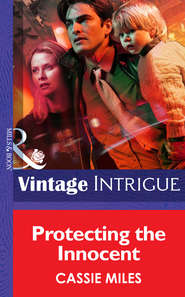По всем вопросам обращайтесь на: info@litportal.ru
(©) 2003-2025.
✖
In the Manor with the Millionaire
Автор
Год написания книги
2019
Настройки чтения
Размер шрифта
Высота строк
Поля
“Time for sleep, Duncan.”
As usual, no response.
To get an answer, Blake used the rhyming repetition that his son enjoyed. “Nighty-night. Sleep tight…”
“And don’t let the bedbugs bite,” Duncan said.
Sometimes, the kid scared the hell out of him. Tonight, when he’d disappeared, Blake had feared disaster. A fall from the precipitous cliffs near the lighthouse. An attack by wild dogs or animals. Worse, a confrontation with a serial killer. Why had Duncan spoken the name of one of the victims? The boy must have known that Sofia Lagios was dead because he said she was with the angels. But how? How had he known?
Life would be a lot easier if Blake could ask a simple question and get a simple answer, but his son’s brain didn’t work that way.
Duncan stared up at the fluorescent stars Blake had attached to the ceiling in a precise geometric pattern. “I have a friend,” he said. “She sells seashells.”
“That’s great, buddy.” It had to be an imaginary friend. He hadn’t been around any other children. “What’s her name?”
“Temperance Raven. She wears a red cape.” His tiny fingers laced together, then pulled apart. He repeated the action three times. “I like French fries.”
“Where did you meet Temperance?”
“By the lighthouse. She wanted me to play with her.”
Blake didn’t like the sound of this. The lighthouse was under construction, dangerous. “Was Temperance outside? In the rain?”
Duncan turned to his side. “Seashells, seashells, seashells…”
“Goodnight, son.”
Blake left the door to his son’s bedroom ajar. Duncan wanted it that way.
Blake wanted to find out what had happened tonight, and there was one person who could tell him. He’d seen Alma escorting that very wet young woman down the hall toward the guest room. What was her name? Madeline? She might be able to give him information about Duncan’s supposed new friend. Blake tapped on her door.
“Alma?” she called out. “Come on in.”
Blake strode inside. “We need to talk.”
Wearing baggy sweatpants and an oversize T-shirt, she stood in front of the mirror above the antique dressing table. Her long black hair fell past her shoulders in a mass of damp tangles. As soon as she spotted him, she grabbed her black-framed glasses and stuck them on the end of her straight, patrician nose. “Mr. Monroe. I thought we might have our interview tomorrow.”
He’d almost forgotten that she was here to apply for a job as his son’s tutor. “I need to know what happened tonight. Duncan mentioned someone named Temperance.”
“I didn’t see anyone else,” she said. “There aren’t any other houses nearby, are there?”
“We’re isolated.”
“That could be a problem.” She pushed the heavy mane away from her face. Her complexion was fresh, with rosy tints on her cheeks and the tip of her nose. Behind those glasses, black lashes outlined her eyes. An unusual color. Aquamarine.
“Problem?” he asked.
“Not having neighbors.” She gave him a prim smile. “Surely, you’ll want Duncan to have playmates.”
“He doesn’t do well with other children.”
“I know,” she said. “He told me.”
Like hell he did. His son’s conversations were limited to discussions of simple activities, like brushing his teeth. Or repetitions. Or numbers.
She continued, “He was worried that you’d be angry because he was…how did he say it? Inappropriate.”
That sounded like Duncan. “His teachers said his behavior was inappropriate. The word stuck in his mind.”
“Everybody’s like that. We all tend to remember the words that hurt. To let criticism soak in.”
His son wasn’t like everybody else. Far from it. But he appreciated the way she phrased her comments, and Duncan seemed to like her. Maybe Madeline Douglas would be a suitable tutor, after all.
He crossed the room and took a seat in a carved wooden rocking chair, one of several handmade pieces in the manor. “Show me your résumé and recommendations.”
When she gestured toward the window, the graceful motion of her wrist contrasted the baggy black T-shirt. “All my papers are in my car, which is still down the road.”
“Where you ran into Teddy Fisher.”
“I didn’t want to mention this in front of Duncan,” she said, “but Dr. Fisher had a handgun.”
Not good news. He hated to hear that the local loons were armed. Fisher had tons of money and a decent reputation as a scientist with his own laboratories in Raven’s Cliff. He came from a good family; his father had been a Nobel Prize winner. But Teddy’s behavior went beyond eccentric into borderline insanity.
The main reason Blake had taken this job—a step down from his typically high-profile architectural assignments— was because he wanted to get Duncan out of the city into a small-town environment where the pace was slow and distractions were minimal.
“Teddy Fisher owns the Manor,” he said. “But he’s not supposed to visit without notifying me. I’ll remind him.”
She gave a brisk nod. “If you like, I can tell you about my qualifications.”
“Do it.”
She started by rattling off her educational achievements, special recognitions and a bachelor’s degree from an undistinguished college which had taken six years because she’d been holding down a job while going to school. For two years, she’d taught second grade at a parochial school. “Then I started substitute teaching in some of Boston’s inner-city schools.”
He held up his hand, signaling a stop. “Why did you leave a full-time position to be a sub?”
“Alma might have mentioned that I grew up in the foster-care system.”
Vaguely, he recalled some comment. “She might have.”
“I was a throwaway kid. No one expected me to amount to much. But I had a teacher in third grade…a wonderful teacher. She wouldn’t let me shirk on my assignments, made me work hard and kept after me to do better. She noticed me.”
Behind her glasses, her eyes teared up. “She changed my life. By working in inner-city schools, I felt like I might make that kind of difference.”
He liked her earnest compassion. She sure as hell had the empathy needed to work with his son. But did she have the training? Blake wasn’t accustomed to settling for second best. “How much do you know about autism?”
She picked up a straight-back wooden chair and moved it close to his rocker. When she sat, she leaned forward. “What can you tell me about Duncan’s behavior?”
“On the behavioral range of autism, he’s considered to be high-functioning.” Blake had taken his son to a cadre of doctors and therapists. “Initially, we tried drug therapy, but Duncan didn’t respond well. The specialists call his condition a form of hypersensitivity.”











